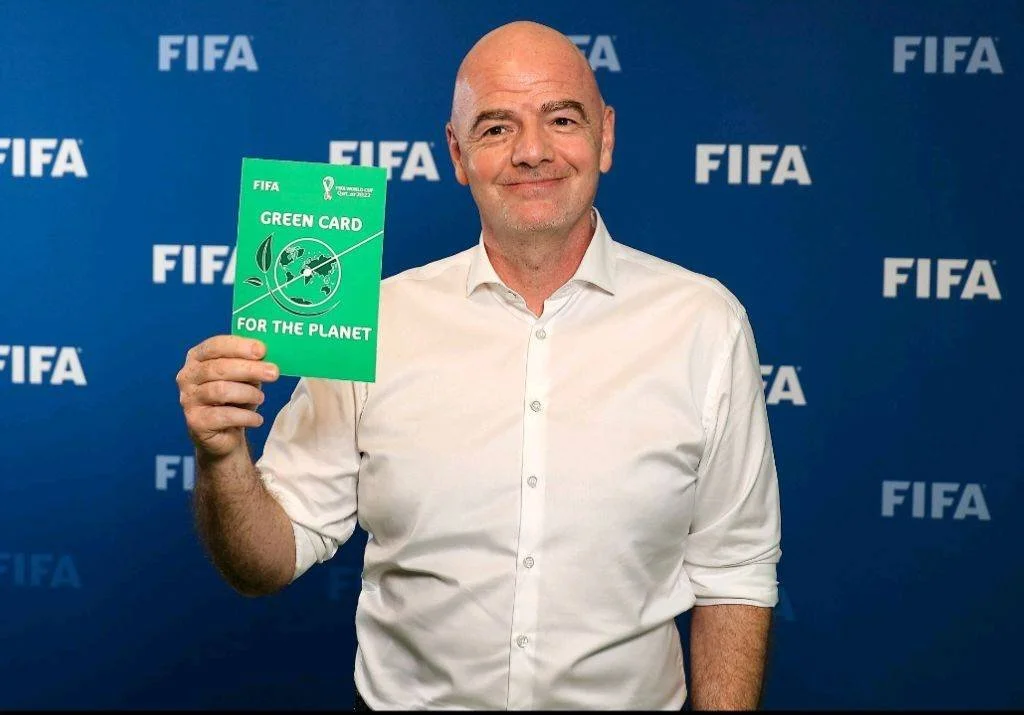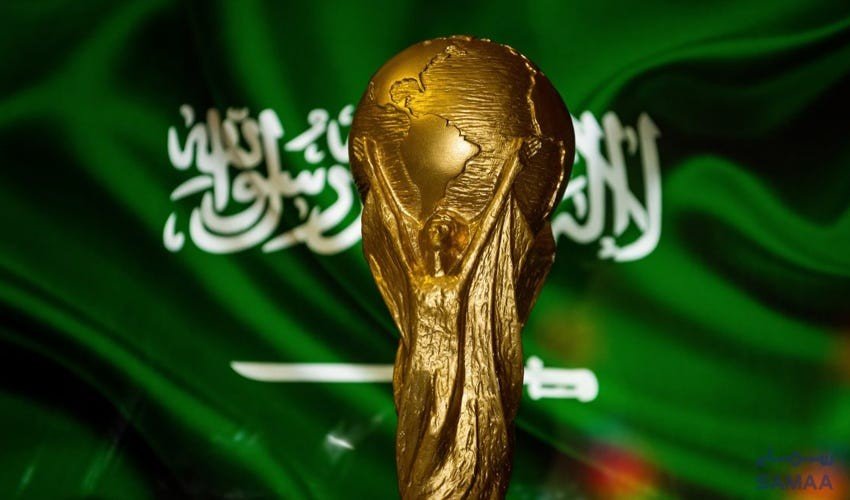“A slap in the face” FIFA Saudi World Cup choice
FIFA’s decision to host 2034 World Cup in Saudi Arabia “is a slap in the face to fans, players and anyone who puts this sport at the centre of their life”
Today the almost inevitable happened: FIFA crowned the Kingdom of Saudi Arabia as the hosts of the 2034 Men’s World Cup as the only bid under consideration. After announcing Saudi Aramco, the gigantic state-owned fossil fuel company, as its major sponsorship partner last year, this decision was all but pre-determined.
Just as its heavily criticised ‘whitewash’ risk assessment of the Saudi bid was published without a press conference where scrutiny would have been possible, the announcement took place behind closed doors and away from the simmering controversy surrounding this historic decision - a controversy that threatens to bubble over.
Despite persistent warnings over the severe and ongoing human rights abuses in Saudi Arabia, especially towards workers, women and the LGBQTI+ community, and the states’ efforts to derail international climate negotiations and lock-in fossil fuel infrastructure for decades to come, FIFA has given the Saudi bid the go-ahead.
But, the fallout from the choice could rupture the global governance of football. The Norwegian football federation plans to abstain from giving its approval to the decision, citing the lack of alternative hosts for the 2034 World Cup. In England, the FA has also stalled on giving its approval but has been warned against protesting unless it is prepared to boycott the tournament.
Footballers, fans and climate campaigners have argued that this decision is part of a wider trend from FIFA which shows a complete disregard for climate change, its threat to all outdoor sport, not just football, and football’s growing environmental impact. The 2026 World Cup, held across 16 cities in Canada, the USA and Mexico has been expanded by 16 teams and 40 matches and will entail vast amounts of air travel for players and fans. The 2030 tournament will take place in six countries across three continents and also have a large environmental footprint.
The 2034 World Cup, now set to take place in Saudi Arabia, for which it plans to build 11 new stadiums, will be a continuation of this trend. But why is it such a blow for the climate and international efforts to fend of climate catastrophe?
FIFA has implicated football and its fans in the vast damage the Saudi regime will inflict with this World Cup. The tournament will further strengthen its hand in crushing those who speak out for freedom within its own borders and will put thousands of vulnerable workers in grave danger. More broadly, it will empower Saudi Arabia in its decades-long strategic campaign to slow the international shift away from fossil fuels; recently made plain in “wrecking ball” tactics at COP29 negotiations and plans to ‘hook’ developing countries on its oil. In fact, Saudi Arabia has been a blocking presence at multiple international environmental negotiations. This all on top of the direct pollution caused by the construction of 11 new stadiums.
Since FIFA President Gianni Infantino told fans to raise a “green card for the planet” and committed to reaching net-zero by 2040, his organisation has delivered the most polluting event ever in Qatar 2022, will add 40 more matches to the 2026 World Cup that will already cause a lot of polluting air travel just because of the vast territory it is organised on, and decided to promote history’s most polluting corporation, Saudi state oil giant Aramco. The 2030 tournament requires lots of air travel across three continents while Saudi ‘34 will lead to massive pollution from the construction of the 11 new stadiums and other infrastructure.
Any hope of cutting football’s massive pollution impact and preserving a future safe to play in demands smaller tournaments with less construction and air travel. Instead, FIFA and Saudi Arabia make misleading claims of ‘carbon neutrality’ built on deeply flawed carbon offset schemes while continuing to embrace fossil fuels.
The Saudi 2034 World Cup coronation represents the most dangerous version yet of a sportswashing model that is a response from polluters to the pressing global need to get off fossil fuels. Petrostates have walked through football’s open door to tell billions that whether its long haul airlines, glitzy stadiums or big money transfers, oil and gas stands for dynamism, prosperity and power, not the regressive, lethal pollution it is. They try to normalise their dangerous products and increase demand through association with the world’s most popular sport, for an audience of billions of fans.
Photo: Westfields Football Club
These issues matter because of the precarious future football faces in a warmer, more unstable world. The beautiful game is deeply vulnerable to climate breakdown; a point driven home this year by flooding events that inundated stadiums or forced them to become makeshift relief centres. For every eye catching picture of an elite venue under water, hundreds of grassroots clubs struggle on unnoticed having done little to cause the problem and lacking the resources to bounce back.
Football fans do not want to see the game they love so dearly condemned to climate chaos. Research shows that most football fans expect powerful actors within the sport to take serious climate action, in line with broader research results indicating that the public expects climate leadership from those in power. The immense number of football fans reached by a World Cup is the reason that harmful regimes and corporations are so desperate to get to them.
Photo: Letter signatory and Manchester City player, Vivianne Miedema
Players want to see action too. The recent letter from 130+ players, who spoke out against FIFA’s Saudi Aramco partnership shows players are concerned about the ties between FIFA and Saudi Arabia, for human rights and climate reasons. In response to the decision to award Saudi Arabia the 2034 World Cup, David Wheeler, professional player at Wycombe Wanderers F.C., said: “Handing over the World Cup to a regime that does such obvious harm is a slap in the face to fans, players and anyone who puts this sport at the centre of their life.
Football should be about respect, hope and community, but FIFA have ensured that its biggest tournament stands for damage, pollution and greed. At any level, football depends on a climate that's fit to play in but we are running out of time to hold onto a safe future. That's why we have to send the clearest possible message that this decision is completely unacceptable.”
Tessel Middag, professional player at Rangers FC with 44 caps for the Dutch national team, who signed an open-letter condemning FIFA’s sponsorship deal with Saudi Aramco, said: “We sent a message to FIFA, loud and clear, that its willingness to let Saudi Arabia improve its reputation through football is isolating players, fans and the planet. Securing a future for football, where everyone can play it and enjoy it, requires real leadership from the very top. The 2034 World Cup decision is further proof that football deserves better.”




